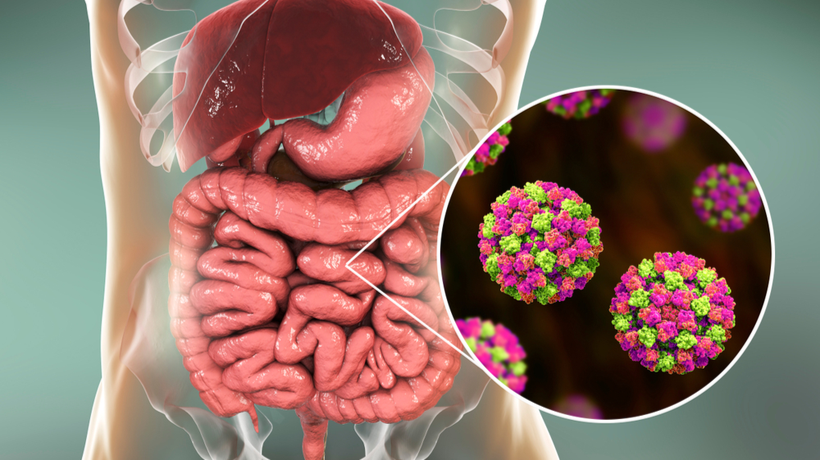Gastroenteritis, commonly known as the stomach flu, can be developed if coming into contact with an infected person or by ingesting contaminated food or water, according to Mayo Clinic. Here are symptoms to tell if you have it and ways to relieve it.
Decreased Appetite
A decrease in appetite is caused by gastroenteritis because of the bacterial that has infected your gut, according to Alana Biggers, M.D. You may even feel nauseous at the thought of food and not want to eat at times when you should.
Pain in Abdomen
Abdomen pain or cramps are a symptom of gastroenteritis. According to Deborah Weatherspoon, Ph.D., the pain can be crampy, achy, dull, intermittent, or sharp. This pain can be located between your chest and pelvis. Weatherspoon says viral, bacterial, or parasitic infections that affect the stomach and intestines cause significant abdominal pain, which is why you may get it if you have gastroenteritis.
Nausea or Vomiting
If you find yourself feeling nauseous that you might vomit or if you do vomit, it is a sign that you can be suffering from a gastrointestinal infection. According to Carissa Stephens, R.N., there are numerous relative causes for nausea but if you begin vomiting it can be because of a bacterial or viral infection or food poisoning.
Watery Diarrhea
According to Saurabh Sethi, M.D., you might experience diarrhea as a result of a viral or bacterial infection, or food poisoning. If you have this symptom, it can mean you have gastroenteritis. It shouldn’t last more than a few days, but it is important to stay hydrated because diarrhea can lead to dehydration, says Sethi.
Low-grade Fever
A fever is a sign that your body gives you when there is something wrong. You may get a fever if you have gastroenteritis because your body is fighting off an illness, says Cameron White M.D. Recognizing the fever can help you treat and monitor what is happening to your body. According to White, a normal body temperature is typically around 98.6 degrees Fahrenheit. So, if your temperature is significantly about you may have a fever.
Muscle Aches or Headaches
According to Mayo Clinic, another symptom of gastroenteritis to be aware of. The Mayo Clinic says that symptoms may appear within one to three days after you’re infected and can range from mild to severe. Symptoms usually last a day or two but can last longer.
How to Relieve It
There are few ways that you can help relieve gastroenteritis, but if symptoms get too severe the best decision is to visit your doctor. Recommended by Judith Marcin, M.D., it is important to stay hydrated. It is best to drink plenty of fluids like water, broth, Pedialyte and curtain teas like ginger and peppermint. Even though it may be difficult, Marcin recommends the BRAT diet – bananas, rice, applesauce, and toast – because it contains carbohydrates to give you energy and replenish nutrients. You can take medications to relieve some of the symptoms, as long as it doesn’t cause you to have more of an upset stomach. Marcin also suggests getting plenty of rest.



